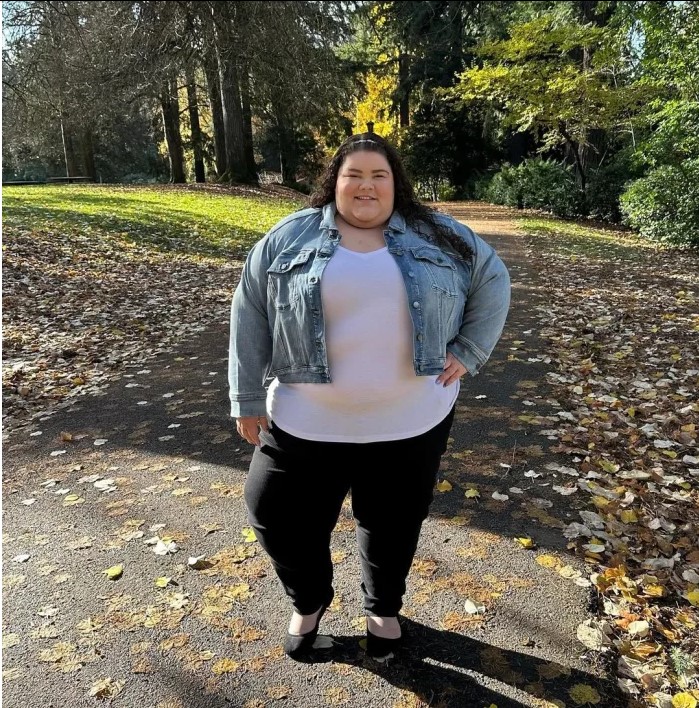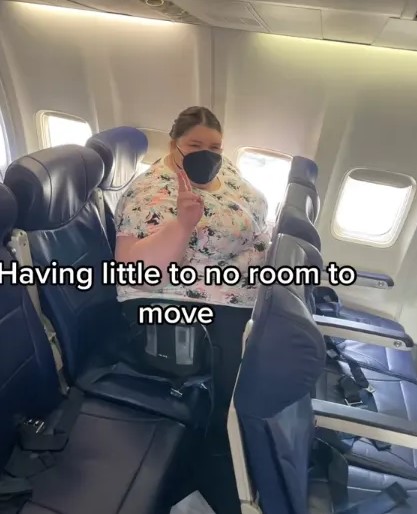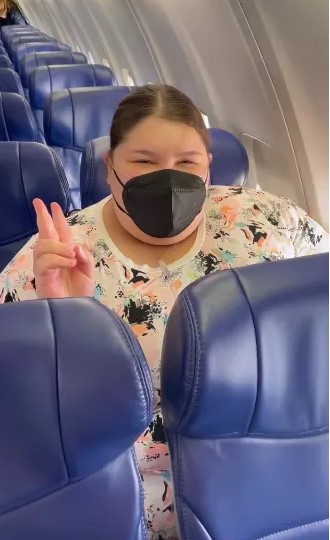In a bold move, 25-year-old influencer Jaelynn Chaney claims she’s collaborating with a US Senator to secure free airplane seats for overweight passengers. Chaney, a travel and lifestyle creator, ignited a fierce debate by demanding the Federal Aviation Authority and airlines provide unlimited free seats for comfortable travel.
In a recent TikTok video, Chaney hinted at meetings with a prominent US Senator’s team, adding a layer of intrigue to her cause. While she hasn’t disclosed the specific Senator, her Instagram page suggests an online connection with Senators Maria Cantwell, Patty Murray, and Tammy Duckworth.

Chaney alleges contact with airline representatives, releasing a petition signed by over 38,000 individuals, advocating for extra free seats for plus-size passengers to ensure their comfort during flights. She insists on reimbursements, suggesting airlines refund those who purchase additional seats independently.
In her petition, Chaney recounts experiences of discrimination and discomfort during flights, highlighting incidents of hateful comments and refusal to sit next to her fiancé. The influencer argues that the mistreatment of plus-size passengers necessitates better policies protecting their dignity and rights.
Despite using seatbelt extenders to enhance comfort during flights, Chaney refrains from flying business or first class, a choice that raises questions among her followers. She emphasizes the need for crew members and TSA agents to undergo training in handling sensitive situations and providing appropriate customer service.
Chaney’s suggestions also include implementing clear guidelines for screening plus-size travelers and providing accessible screening equipment. However, she acknowledges uncertainty about funding these proposed changes.

In a recent statement to Fox News, Chaney discusses the difficulty of providing a one-size-fits-all answer to funding questions but asserts the changes are worth the investment. Interestingly, Southwest Airlines has taken a step in this direction by instituting a ‘Customer of Size’ policy, allowing overweight passengers to obtain the necessary extra seats for free.
The policy defines customers who ‘encroach upon any part of the neighboring seat(s)’ and permits them to purchase additional seats, refundable at check-in. Southwest’s approach focuses on body dimensions rather than weight, bypassing inquiries into customers’ weight or BMI.
While some praise the policy for easing travel for those with obesity, critics argue it may give an unfair advantage and have labeled Southwest’s accommodations as ‘ridiculous.’ Social media discussions highlight concerns about the lack of free space for other passenger needs, such as extra legroom or medical equipment.

In a noteworthy response to Chaney’s advocacy, personal trainer Josh Nabbie criticizes the idea of granting extra seats exclusively to obese passengers. He argues that everyone faces challenges when flying, urging individuals to adapt to accommodations based on their unique circumstances.
Recent data from the Centers for Disease Control and Prevention indicates rising obesity rates in the US, emphasizing the complexity of accommodating diverse passenger needs in the evolving landscape of air travel policies.


